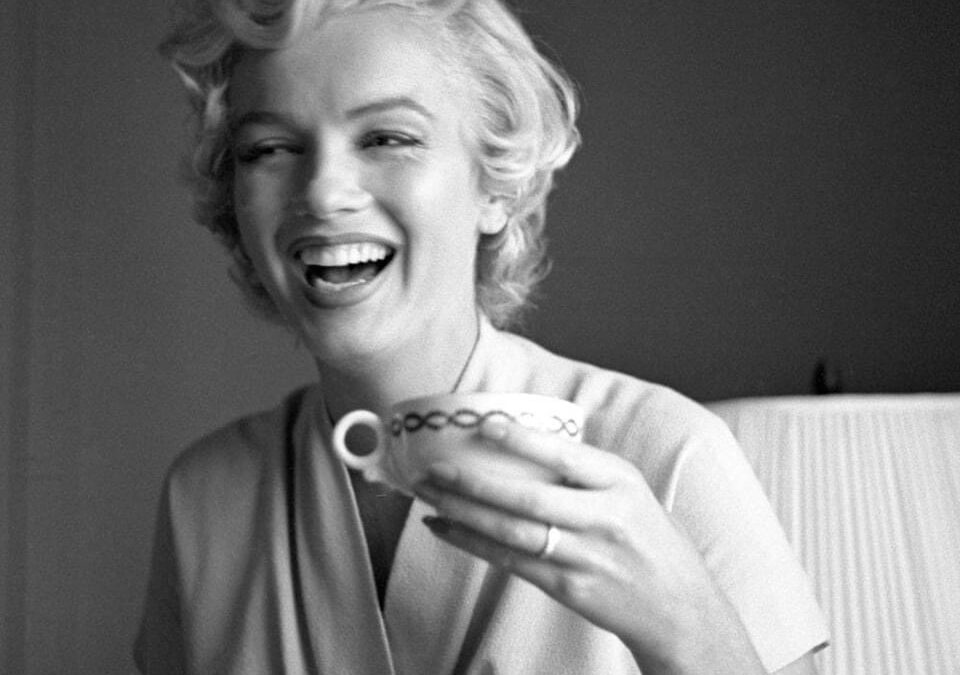I tried watching the movie Blonde on Netflix, and it really pissed me off because it was an awesome opportunity to show what a cool person Marilyn Monroe actually was. She was a remarkable woman who was not just an actress but an activist progressive voice in Hollywood. The movie sort of goes over some of this, but it’s all through a story telling lens that paints Monroe as a constant victim, when in reality she was her own greatest champion. Marilyn Monroe is very much the hero of her story.

She married Arthur Miller after he had been called to testify during McCarthyism and anti-Communist investigations. Miller wrote The Crucible which basically spit in the face of McCarthy, and not only standing with him, but marrying him, was an incredibly brave act at the time. She openly supported Miller while other actors were running scared from McCarthy.

Marilyn famously stood up for Ella Fitzgerald when Fitzgerald wasn’t allowed to play at the Mocambo and other places in Hollywood because of her race. Fitzgerald said, “I owe Marilyn Monroe a real debt… she personally called the owner of the Mocambo and told him she wanted me booked immediately, and if he would do it, she would take a front table every night. She told him — and it was true, due to Marilyn’s superstar status — that the press would go wild.”

“The owner said yes, and Marilyn was there, front table, every night. The press went overboard. After that, I never had to play a small jazz club again. She was an unusual woman — a little ahead of her times. And she didn’t know it.”
Michelle Morgan, a Monroe biographer, writes “Marilyn didn’t care what people thought of her. She had this ambition and she wanted to go for it … She was constantly educating herself, always fighting for the rights of herself and other people. And really, she contributed to the breakdown of the studio system by … demanding her rights and demanding to be treated as an individual, as a human being. She was a trailblazer.”

She took on the studio when they wanted her to do a role she thought was demeaning and she refused. They suspended her contract and expected her to come back with her tail between her legs. Instead, as her wiki explains, “When the studio was still reluctant to change Monroe’s contract, she founded her own film production company in 1954. She dedicated 1955 to building the company and began studying method acting under Lee Strasberg at the Actors Studio. Later that year, Fox awarded her a new contract, which gave her more control and a larger salary.”
In 1960, she became a founding member of the Hollywood branch of the Committee for a Sane Nuclear Policy.

Marilyn Monroe was, plainly stated, a fucking cool person and interesting historical figure. She did have a difficult childhood filled with abuse and bouncing between orphanages and foster homes, but what is remarkable is the fortitude and straight up bad-ass-ness that growing up like this instilled in her. She was actually one of the few actresses that openly talked about film executives trying to sexually exploit actresses, she talked about walking out of interviews after being propositioned, and warned others as much as she could about this predatory behavior. She was out there trying to expose the Weinsteins of her time.
Marilyn Monroe was well read, funny, strong, a good friend, a great step mom. She spent the night of her death consoling Joe Dimaggio Jr. over the phone about a break up. She had been divorced from his dad for a long time, but you don’t divorce kids, and he still saw her as a mom figure.

To take this human, complicated, fascinating figure and make a movie about her life that amounts to watching her cry for two hours while being abused in various ways is basically a crime. A crime against facts, against women, against historical accuracy, against decency, and against good film making or story telling.
I hope this is the last movie that gets made exploiting her memory in such a gross way, and it’s sad that this movie filled a space that could have been taken by a movie that actually told her real story and did any of it justice.
– by Taylor Renee














